“Wait, so what really is Criminology?”
This is a question I tend to get asked a lot, so today I thought I would finally address it, just to give an idea of what it really is I’m doing at Surrey and hopefully help out those thinking of studying Criminology.
Simply put, Criminology is the study of crime. It deals with understanding, explaining, preventing, and treating crime and criminal behaviour from a simple shoplifting to mass murder. It therefore is based in several perspectives and involves loads of other different disciplines from sociology to law to psychology, philosophy, biology – even Economics if you really want to! There is no one explanation or understanding of criminal behaviour, and so that’s why Criminology tends to be pretty broad, encompassing several ideas from other fields. Being a social science degree, it also inevitably involves a high level of training in research and analysis. To put it into perspective, of the 16 modules I have done or am doing thus far (including those I’m studying now), 5 of them have been research modules (which makes up about 31%). There is at least one research module per semester, meaning you’re not just studying theoretical knowledge but learning how to apply it practically as well.
A lot of people tend to confuse it with Forensic Science or Forensic Pathology. I get several comments on the lines of “oh, so CSI stuff!” or “so you’ll be like one of those people testing dead bodies?” or “so you probably use a lot of biology and chemistry?”. And, while Criminology can involve and often crosses paths with these, they are not its main focus. Forensic Science is, basically, the application of science to legal processes – that is, investigating and prosecuting crime (in the same way, Forensic Psychology is the application of psychology to legal processes). It therefore deals with scientific research and inquiry in the aid of a legal, (usually) criminal investigation – so, yes, the CSI guys. Forensic Scientists would be those in the labs testing DNA samples and analysing fingerprints and shell casings, with the coats and goggles and all the chemicals, basically being just all-round cool. A criminologist, however, is not generally trained in this. It is possible to be a criminologist and a forensic scientist, but Criminology on its own is much broader and more theoretical and does not specialise in the processes of Forensic Science. (We did, however, get to do a module in it first year, which was very interesting!).
Similarly, Criminology is also often taken to mean Forensic, Criminal or Investigative Psychology. Criminology does encompass these fields – they are some of the ways in which crime is studied and applied from a Psychological perspective – but they are only a small facet of criminological understanding, and only a small bit of what we study in the degree.
In the first semester of first year, the modules we studied were Crime and Society, Fundamentals of Forensic Science, Introduction to Research Methods, and Quantitative Methods. My favourite of these was probably the Forensic module. In it, we learned about the basics of Forensic Science such as trace and contact, DNA and fingerprint analysis; Crime Scene Investigation, Profiling and Documentation; and general examination methods. It also touched on Forensic Science in application to the law, and the ways in which it is used as evidence in a trial. Being Criminology students, we didn’t delve too deep into the chemistry or biology of these processes – though we did touch on them – and the module was mostly geared towards how forensic science is useful to social scientists. However, we still got to do loads of fun scientific experiments such as testing different tools to identify the weapon and collecting and analysing fingerprint evidence. For one of our assessments, we also had a CSI field day where there were 3 different crime scenes set up across campus and we had to go to each one – fully decked out in our CSI suits and gloves – to collect evidence and document the crime scene, analysing it for any clues that we then used to write a report to deduce the sequence of events.
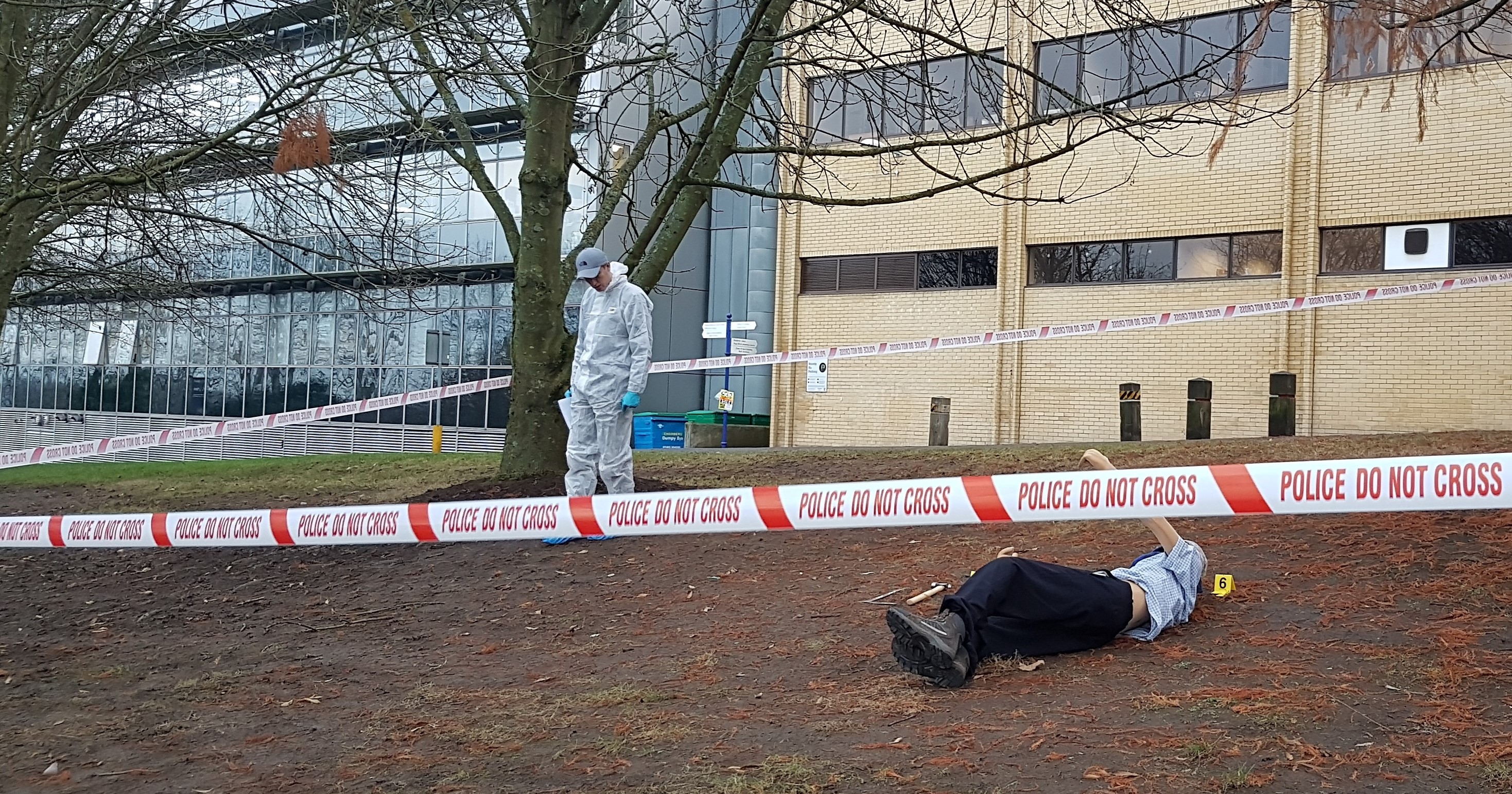
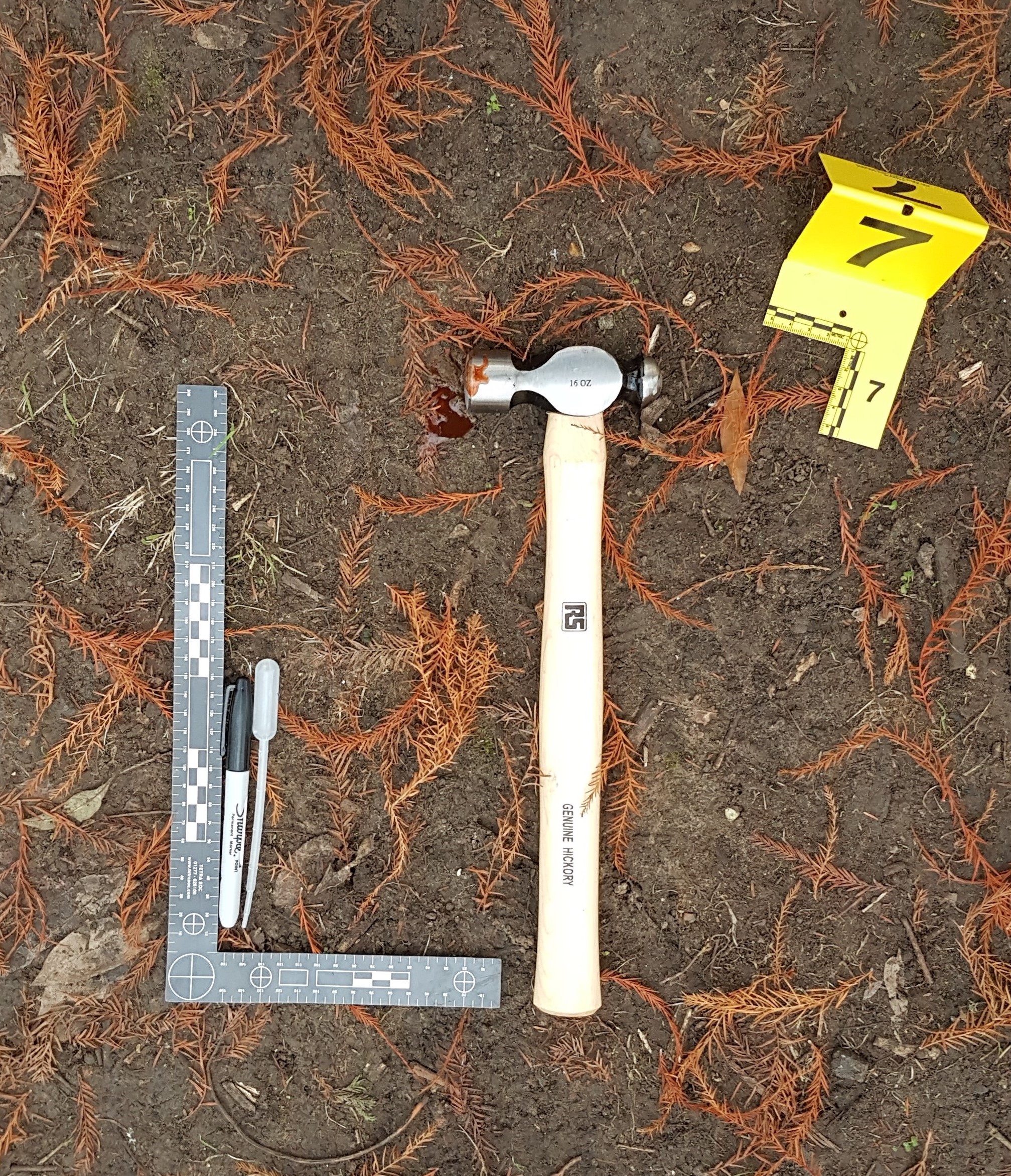
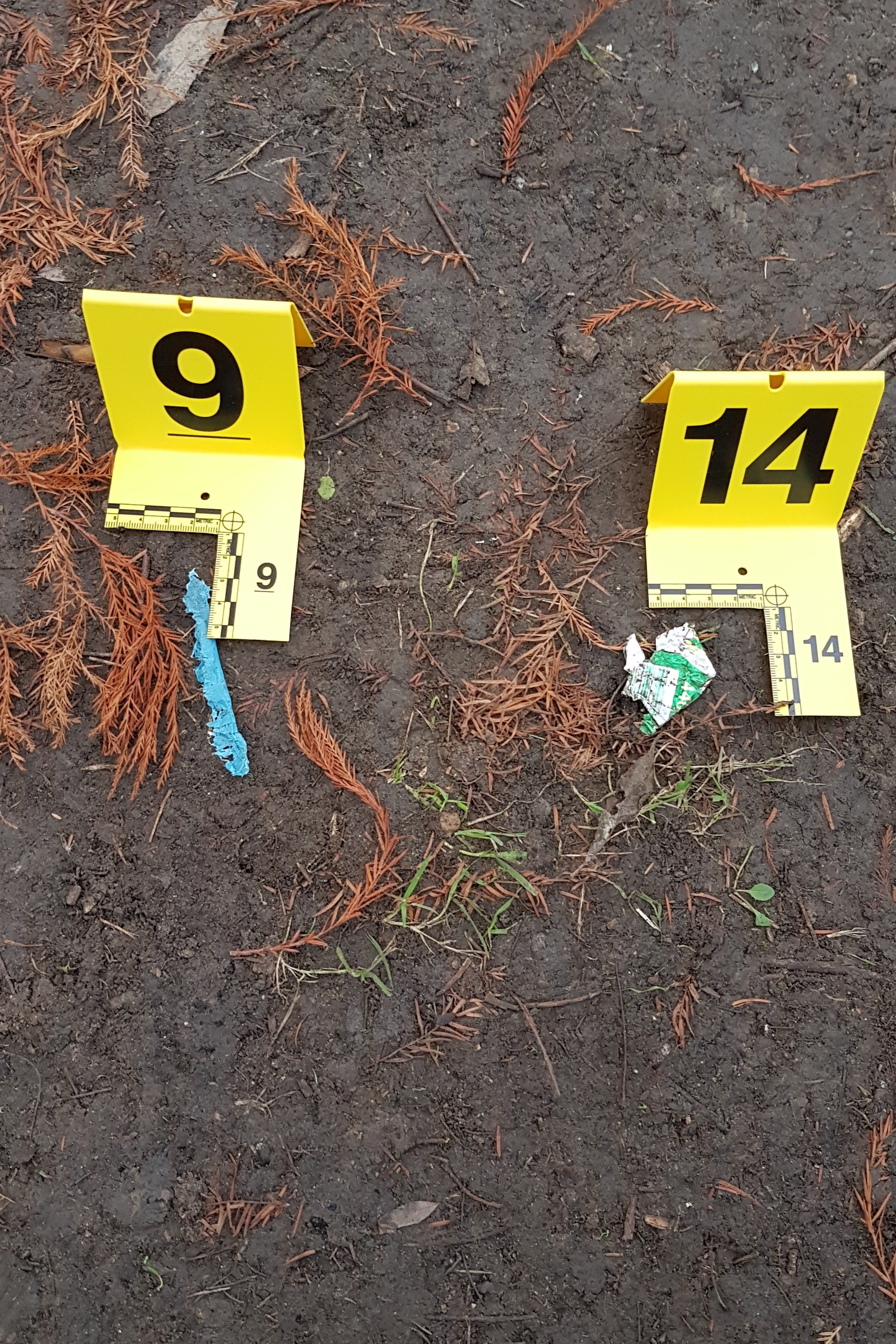
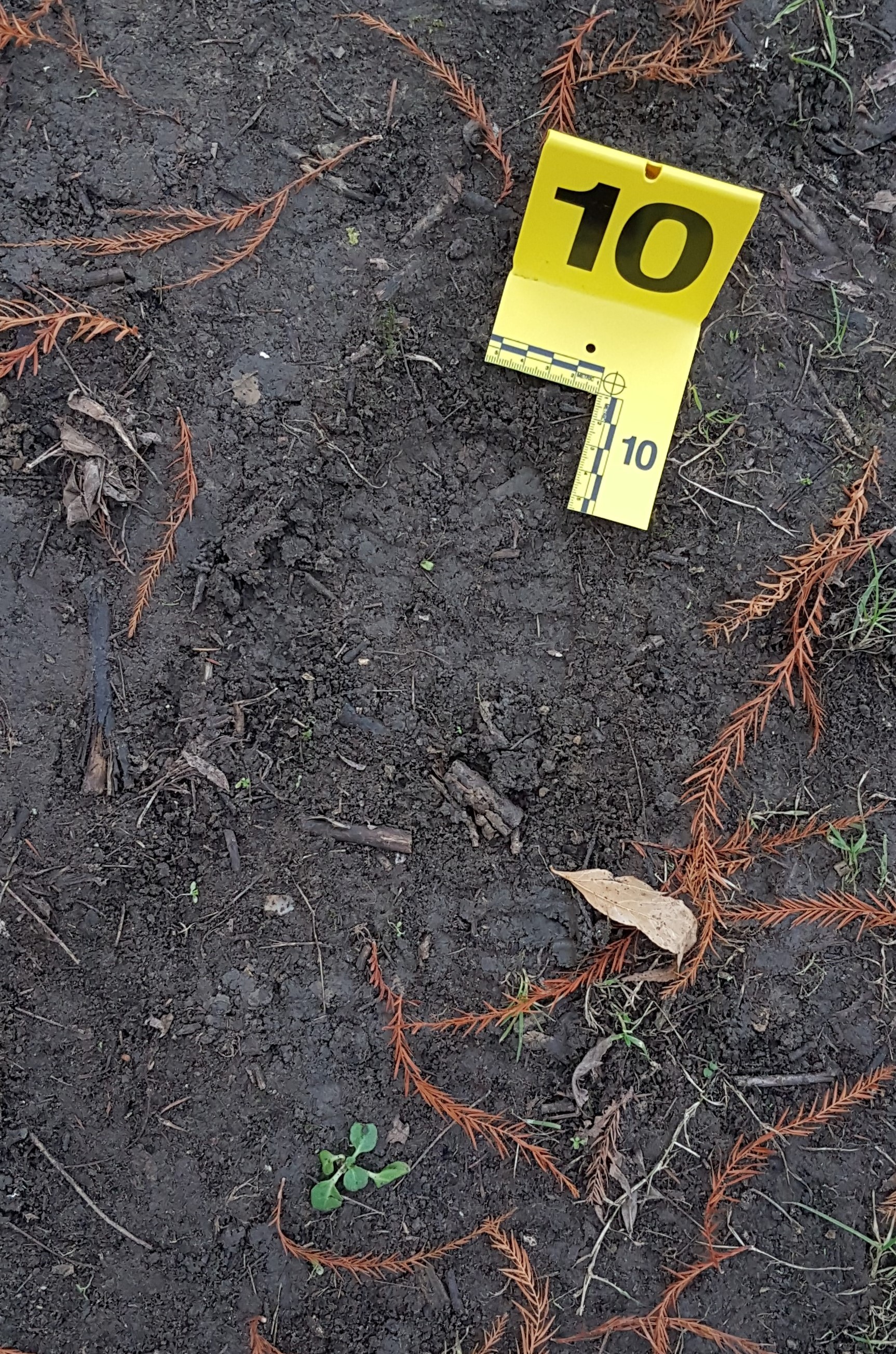
We had to mark and document every single thing we considered to be evidence. That meant looking over everything with a fine eye and ensuring every area of the crime scene was covered. Some things were a lot easier to miss than others! (Like the barely recognisable footprint marked as no.10)
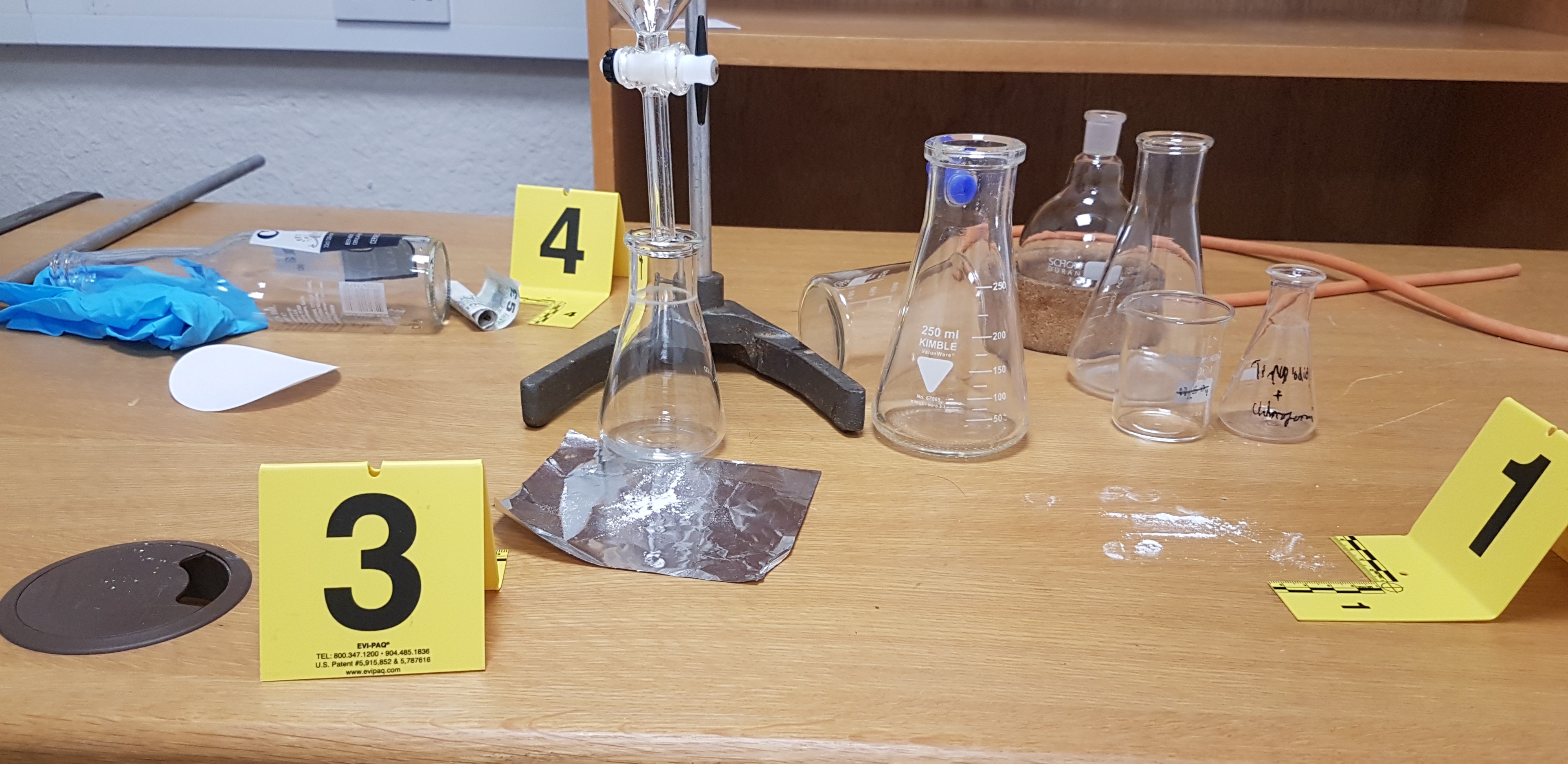
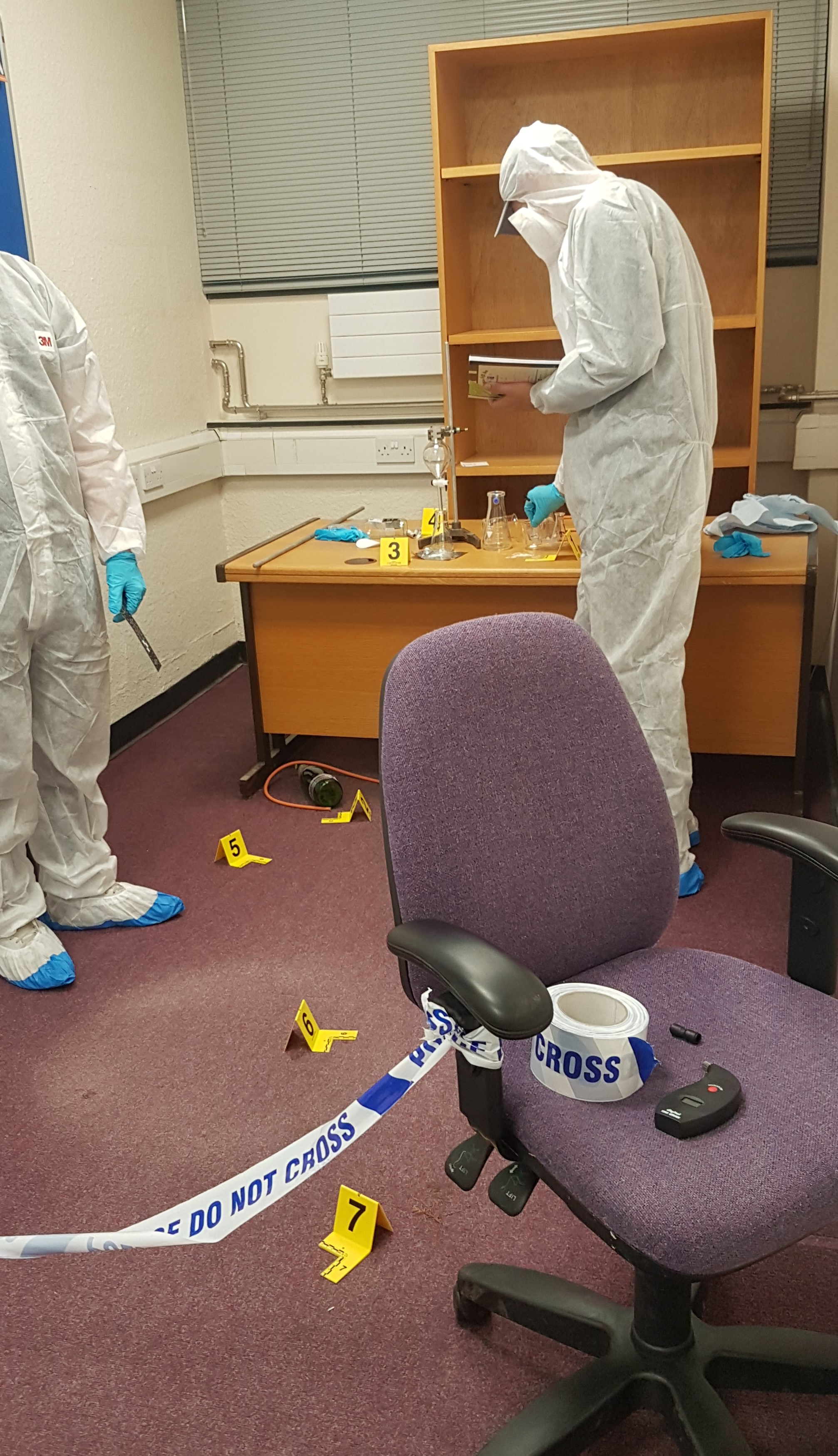
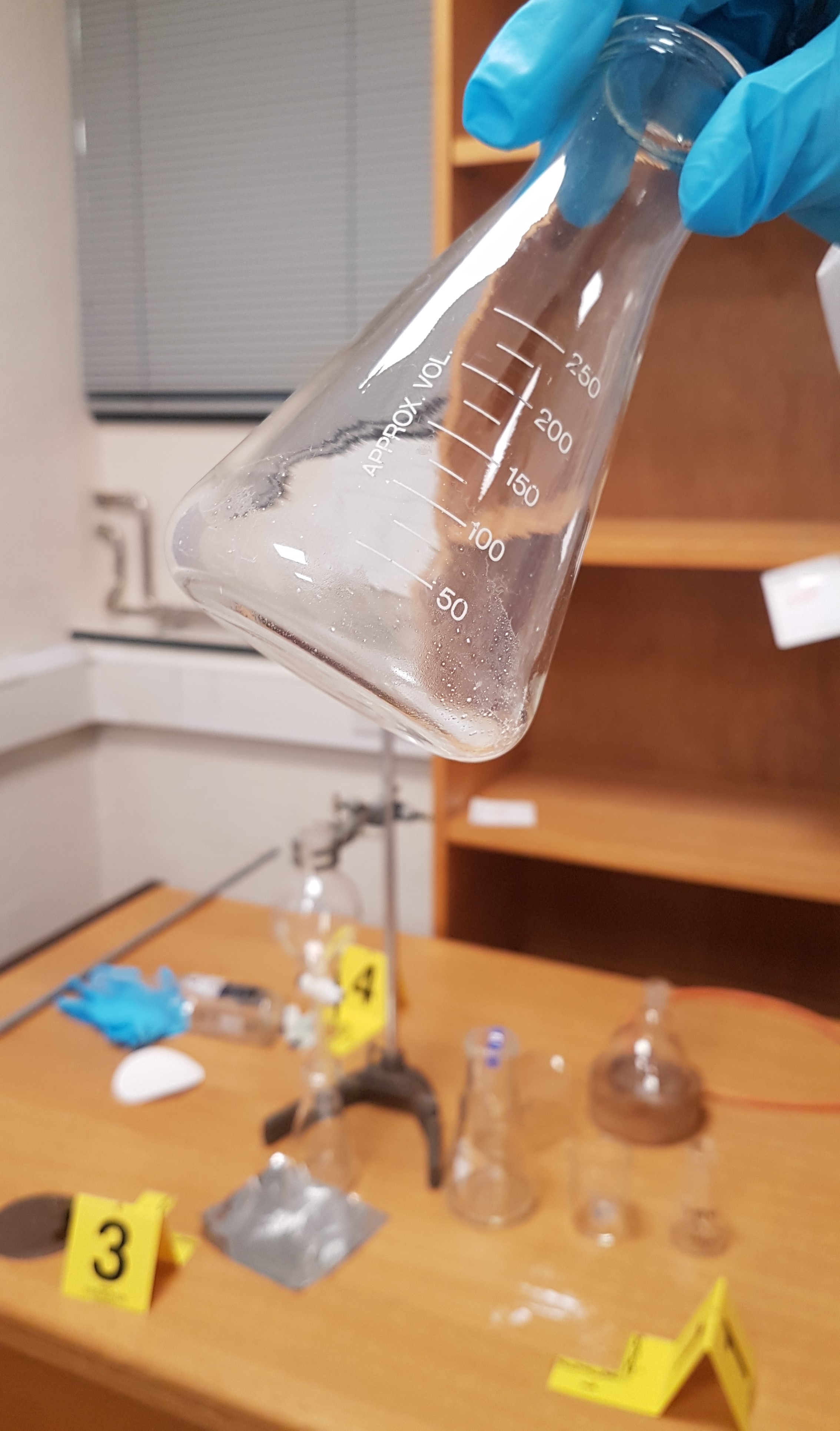
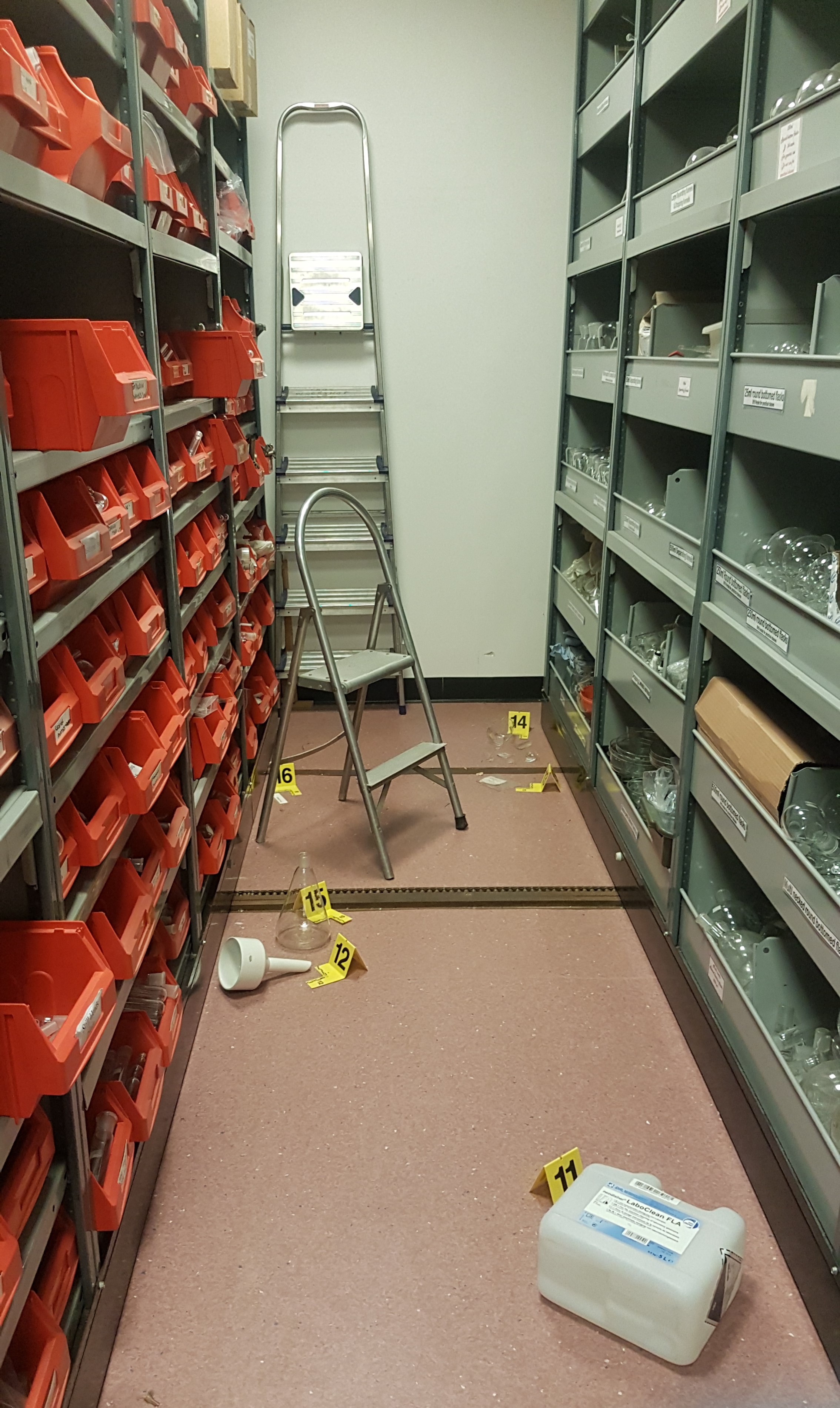
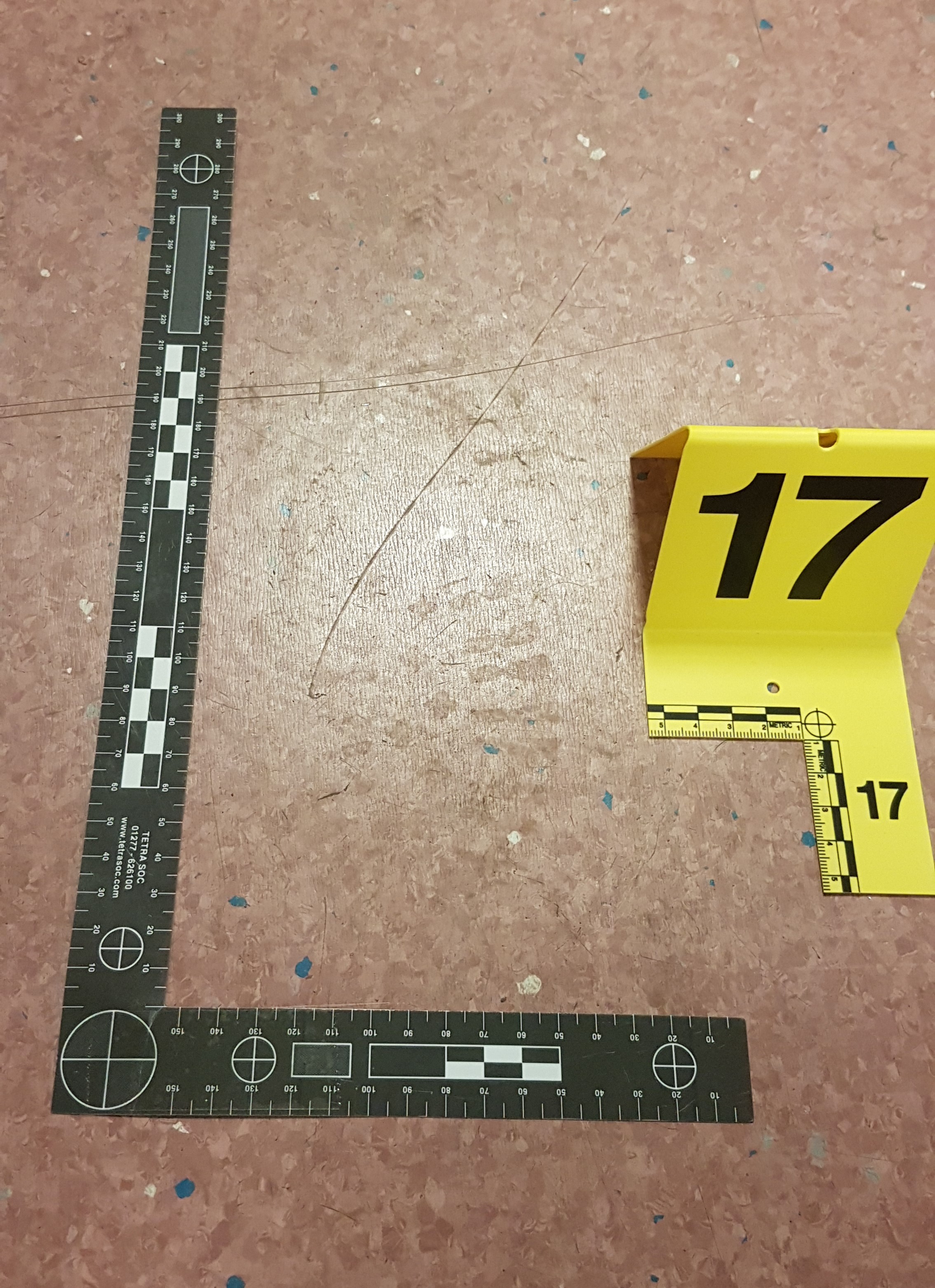
Another barely noticeable footprint is scene in the picture marked 17. Footprints are one example of the types of physical evidence left at a crime scene that we learned about.
In second semester, the modules studied were Concepts of Criminal Law, Introduction to Criminological Theories, Introduction to Criminal Justice Systems and Qualitative Methods. Of these, my favourite was the Criminal Law one. What I found particularly interesting was the emphasis on what a crime is, rather than what it ought to be. We also discussed just as much what a crime is not as we did what it is. The module dealt with the principles of criminal law, and how these then relate to several different types of crime- from property offences to sexual offences, and all offences against the person from a minor assault to murder – as stipulated in UK law. We broke down all of this laws into their actus reus and mens rea and, for each, analysed the different ways in which this therefore means that particular crime may be committed. We also analysed the ways in which these crimes are not committed, even if it may seem that they are. It was really interesting getting to understand the intricacies and complexities of UK criminal law, and the module helped greatly in understanding the flaws of this and how difficult it is to legally define crime.
In the first semester of second year, we studied Psychology of Criminal Behaviour; Crime, Power and Justice; Crime, Community Safety and Crime Prevention; and Using Research for Policy, Practice and Impact – the second of which was the optional module I picked. My favourite of these was the Psychology of Criminology behaviour where we delved into the application of Psychology and all its facets to the explanation, prevention and treatment of criminal behaviour. In it we also dealt with the fields of (and difference between) criminal, forensic and investigative psychology. This semester, I am studying Punishment and Society, Crime and Media (the optional module I picked), Quantitative Methods and Applied Criminological Theories. I am yet to find a favourite as we have just barely started!
For those interested in a Criminology course at Surrey, it is worth noting that the course is almost always under review and improvement, so it is not guaranteed that these are the exact modules you will be studying or order in which you will be studying them. However, it is a good idea of the content that is studied here at Surrey so feel free to use it as a guide for your considerations.
Hopefully this has made some sense, and not confused you! And hopefully it has also given more of an insight into what exactly Criminology entails. If you do still have questions (or rebuttals – I don’t claim to be an expert on this), I’m always just an email away.
Till next time,
Ciku.
